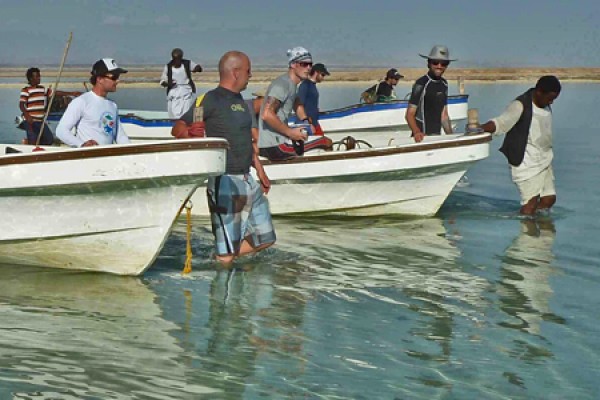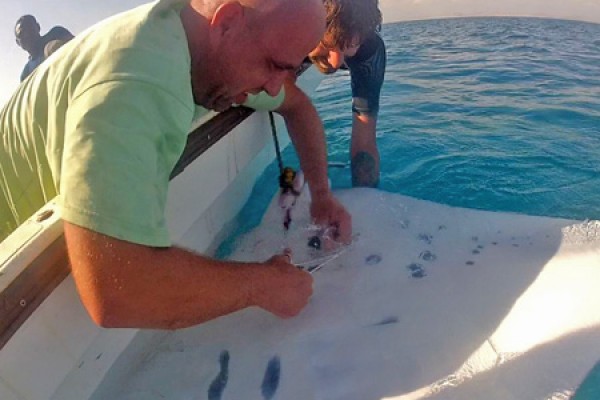 Research associate Nigel Hussey (fourth from left) and his team ventures out into the Red Sea.
Research associate Nigel Hussey (fourth from left) and his team ventures out into the Red Sea.
Ecological conservation shouldn’t be derailed by economic sanctions dictated by politics, says a UWindsor researcher whose commentary on the subject has been published by the journal Nature.
Nigel Hussey wants you to think of pristine marine and terrestrial wildlife resources when you think of Sudan. But first, Sudan needs greater access to conservation funding and that’s proving to be a struggle because of economic sanctions imposed on the country.







